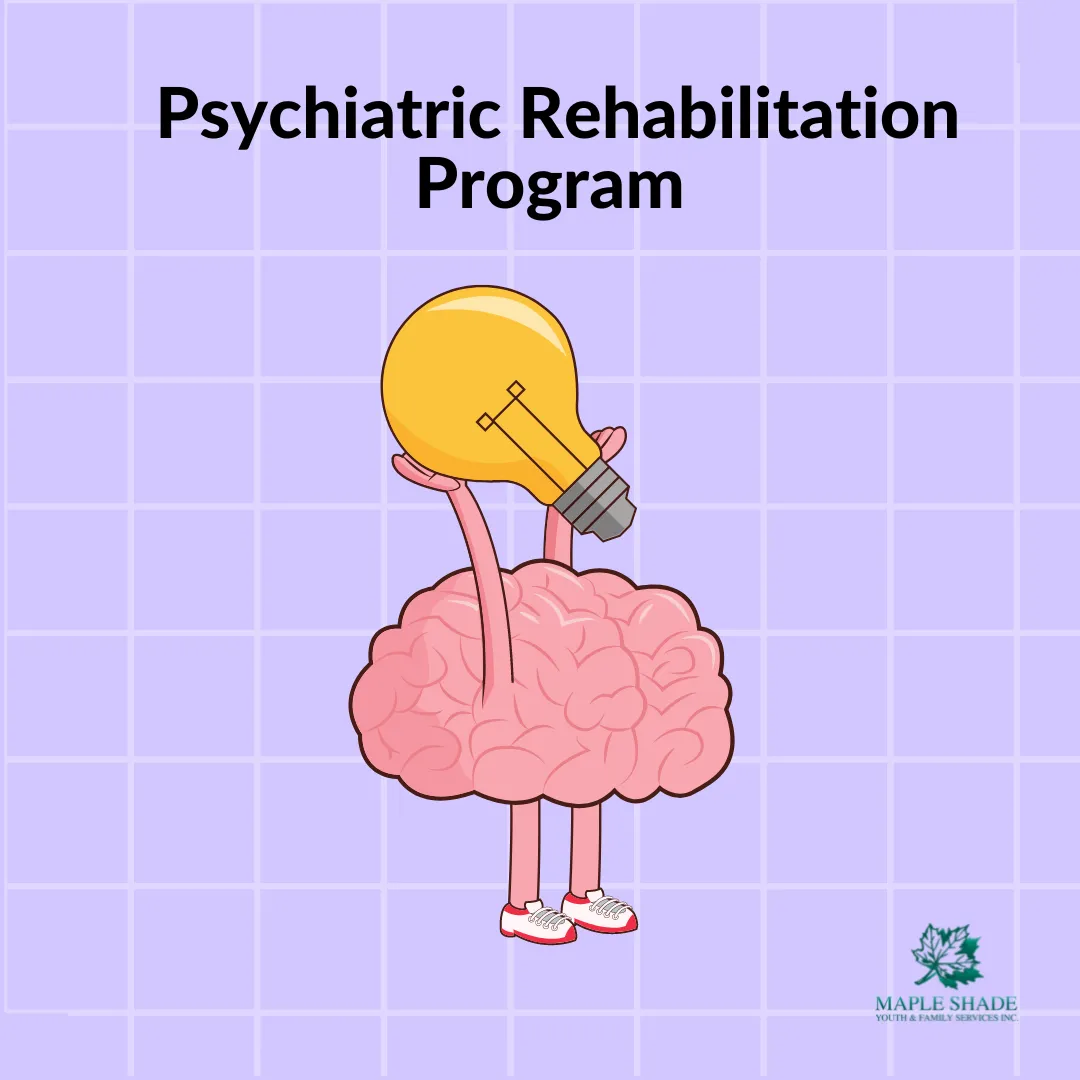This program offers psychiatric support services to children and adolescents with serious emotional disturbances. Our model is based on the “wraparound model” where services are provided within the home, school and community. The PRP staff members are the eyes, ears and hands of the mental health provider incorporated into the daily life situations of the child and family.
Our PRP Services include:
· Rehabilitation assessment and ongoing evaluation to identify strengths, skills and needs.
· Facilitate development of self-care and age appropriate living and social skills.
· Promote use of community resources.
· Medication education monitoring.

· Health promotion and training.
· Crisis planning and support services– 24/7 on call.
· Assisted access to entitlements.
· Networking with other involved agencies.
· Respite care in treatment foster care or group home setting if needed.
· Therapeutic Behavioral Services for clients with mental health issues and developmental disabilities, which includes:
- Functional Behavioral Analysis
- 1 on 1 Therapeutic Behavioral Aid
What is PRP?
-
PRP stands for psychiatric rehabilitation program. This program is an add-on to therapy and must be referred by a therapist. In order to qualify for PRP services, the client must be active in their current therapeutic services and would ideally be seen weekly by a therapist.
-
Your child will be assigned a Caseworker who will schedule appointments with your child at least three time per month. PRP Caseworker’s do not provide services in the school setting so their visits will be scheduled in the evening or weekend hours.
-
This is not therapy, it is an add-on service to assist your child in the skills needed to improve daily functioning in all areas of their life (home, school, and community). PRP is primarily a group service so your child may be participating in weekly group activities lead by their PRP Caseworker.
-
-
What is the goal and objective of PRP?
-
PRP services are designed to promote positive peer interaction, effective communication, self-help skills, completion of age-appropriate activities of daily living, frustration tolerance, etc. It is expected that the services will be designed and developed to address the individual rehabilitative needs of each child and adolescent, while taking into account the stressors evolving from the environment at home or in school. Providers of PRP services for children and adolescents must document progress on age-appropriate self-care and social skills, and should address any barriers to improvement in the participant’s overall functioning.
-
Once accepted in the program, this is what you will expect:
ENROLLMENT
-
Within 10 working days of the date of acceptance, the assigned PRP Caseworker will meet with the client to obtain electronic consent of the individual, inform of procedures for discharge, charges for service and establish a date for initiation of services.
-
During the initial session, the PRP Caseworker will complete an Assessment which includes information regarding: Housing/Basic Living, Patient and Family Independent Living/Community Skills, Family Relationships, Employment/Income Management, Physical Health/Medication, Psychological/Emotional/Behavioral, Leisure/Social Supports and Community Resource Utilization. This information is obtained as a way for the PRP worker to assist the family and client in obtaining any entitlements (if needed) and provide a way to assess client’s progress while enrolled in the program.
PHYSICAL HISTORY
-
No later than 2 months from the date of initiation of services, documentation must be entered into the client’s record of a physical examination and immunization records not more than one year old. Documentation should include somatic health problems, if any, including history of allergies, has not been physical examination has not been completed and waives the requirement stating the rationale, or documents a plan with a period for the obtaining of the physical examination.
-
A yearly physical and immunization records are required to remain an active participate in the program.
-
INDIVDUAL REHABILITATION PLAN
-
Within 30 calendar days of the initiation of services, the assigned PRP Caseworker will complete an Individual Rehabilitation Plan IRP in collaboration with the client, client’s family, the mental health provider and significant others if consented to by the client.
-
The IRP must include any identified health promotion and training needs. This plan is to be reviewed by the Rehabilitation Specialist/PRP Director.
-
IRPs are to be signed by client, client’s guardian, and the PRP Director.
-
IRPs are completed every three months to continue to review areas of improvement and/or deficits.
PRP Director/Rehabilitation Specialist
Joy Gibson- McIntire LCPC
[email protected]
240-885-5709
Administrative Support Staff
Kristen Lancaster
[email protected]
240-885-5732
410-677-0202 ext 117 or ext 113
Fax: 410-677-0303
To make a referral, please click on the link below and email the form to [email protected].
This must be made by a licenced therapist and the client must have current mental health treatment.
